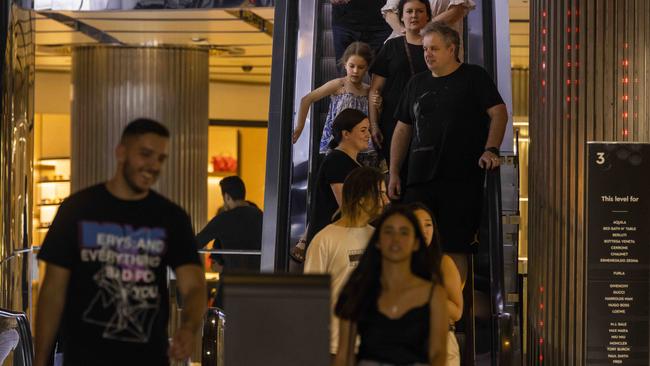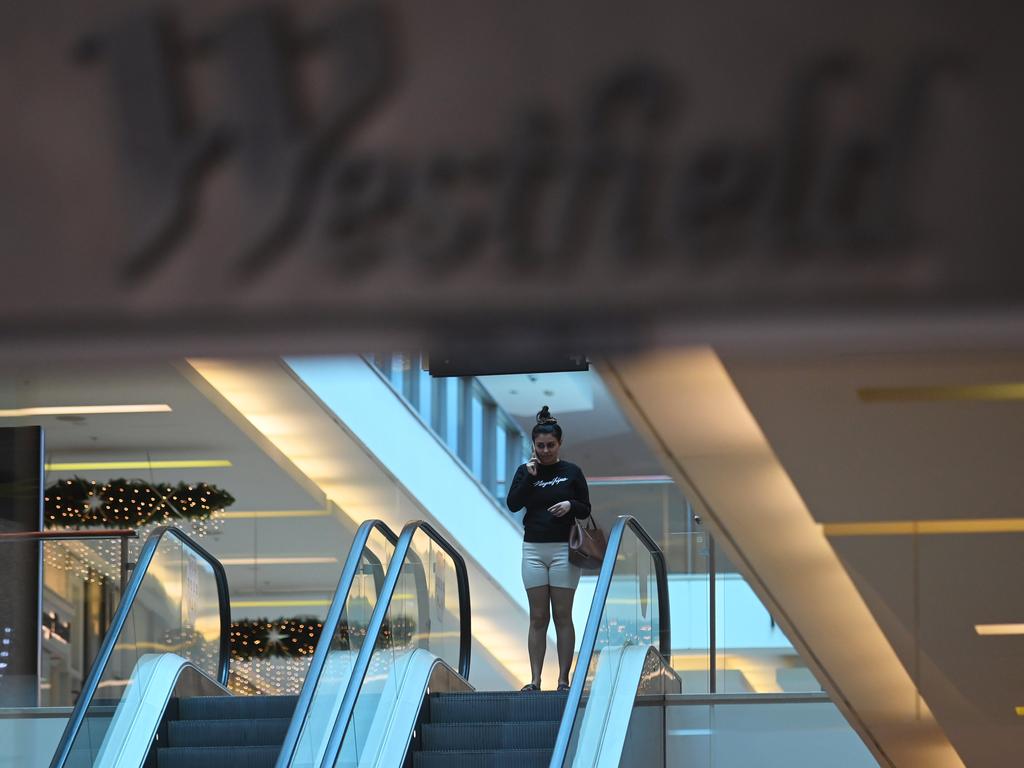Retailers to study Covid’s changes to consumer shopping behaviour
A committee set up by the Australian Retailers Association will study the implications of how COVID-19 has changed consumer shopping behaviour.

A high-powered group of Australia’s top retailers will be represented on a new committee set up by the Australian Retailers Association which will study the implications of how COVID-19 has changed consumer shopping behaviour.
The committee, which will include senior executives from Amazon, Bunnings, Harvey Norman, 7-Eleven, JB Hi-Fi and Kmart, will be chaired by Queensland University of Technology professor Gary Mortimer.
The advisory committee has been established as part of a strategic partnership between the Australian Retailers Association and QUT to study changing consumer behaviour and how it affects the retail industry.
“We will be looking at the post COVID-19 consumer: what they are like and how their discretionary spending might change,” Professor Mortimer told The Australian.
“What does the rise in online shopping and e-commerce really mean and what impact will it have on physical retail stores?”
He said COVID-19 had seen a dramatic increase in online shopping in Australia, with some surveys showing increases of more than 40 per cent, particularly in non-food areas.
Online shopping was now responsible for some 16 per cent of non-food shopping in Australia.
“We estimate that was some $45bn in online sales in 2020,” he said.
He said there would be a slowdown in the rapid growth of online shopping.
“We won’t see the continued massive growth like we have seen during COVID-19 last year,” he said.
“The growth will slow down this year but it won’t go backwards.”
Professor Mortimer said this had major implications for the future of retail stores and shopping centres. While physical store space was shrinking and major retailers such as David Jones and Big W were closing shops, people still saw shopping malls as an important part of the community.
He said this could see changing opportunities for shopping malls such as the Westfield mall in the Brisbane suburb of Indooroopilly, which had just done a deal with car retailer AP Eagers to create an AutoMall new car show room in space once leased by retailer Myer.
Announcing the deal in early February, Marco Ettore, the head of retail for the mall’s 50 per cent owner AMP Capital, said the deal was part of a trend to see shopping centres become “lifestyle” destinations.

Westfield shopping centre owner the Scentre Group now calls its shopping malls “Westfield living centres”.
“The closure of retail stores will create challenges for shopping centres,” Professor Mortimer said.
“It will create opportunities for shopping centre owners to do some new things with the space.”
He said some supermarkets were now opening mini fulfilment centres for online shopping at the back of their stores.
Professor Mortimer said that some retailers had benefited greatly from COVID-19, as Australian consumers who would otherwise be travelling overseas spent more on products for their home.
But this could change when the international borders reopened.
“The biggest hurdle retailers will face is when the international borders reopen and we get back to some level of normality with international travel,” he said. “Retailers need to be prepared for that.”
But at the moment some retail sectors, particularly retailers in airports and duty free stores, were suffering because of the closure of international travel and the cutback in domestic travel.
“The duty free stores and travel retailers have been decimated,” he said.
Professor Mortimer hoped that this sector could be given some level of government support as it could take as long as 2023 before international travel was back to the levels it had been at before COVID-19 struck early last year.
“People have retreated to their homes, which has seen a big increase in spending in home related areas,” he said.
But he said once international borders were open the “pent-up demand” for international travel would see consumers refocus their spending on travel and less on domestic retail.
Professor Mortimer said COVID-19 had also raised issues about the future of CBDs, which had implications for retailers in city centres.
“What will the post COVID-19 CBD look like?” he said.

Professor Mortimer said that the committee would also be examining how retailers could gain more trust in their digital dealings with customers, in the light of some of the lessons of COVID-19.
He said the use of COVID-19 check-in QR codes had shown the Australian public was receptive to having more “digital trust” about sharing their information with third parties if it was done well.
“We need to look at the growth of online shopping and digital trust.
“What are the barriers to trust and how can retailers learn from the experience of COVID-19 to build more trust around online transactions?”
ARA chief executive, former David Jones chief executive Paul Zahra, said there had been a “massive shift in consumer behaviour over the past year”.
“It is important that retailers have a comprehensive overview of consumer insights,” he said.
“COVID-19 has accelerated a number of retail trends in tech development and innovation.
“It’s important retailers have a deep understanding of what that means for their businesses and customers for the years ahead,” he said.
“Not only did the pandemic cause a powerful shift in the way people work and socialise – but also in the way we shop and interact with businesses and products we want to purchase.
“We look forward to unlocking deeper insights in consumer behaviours to ensure the retail industry is well placed to meet the challenges ahead.”







To join the conversation, please log in. Don't have an account? Register
Join the conversation, you are commenting as Logout